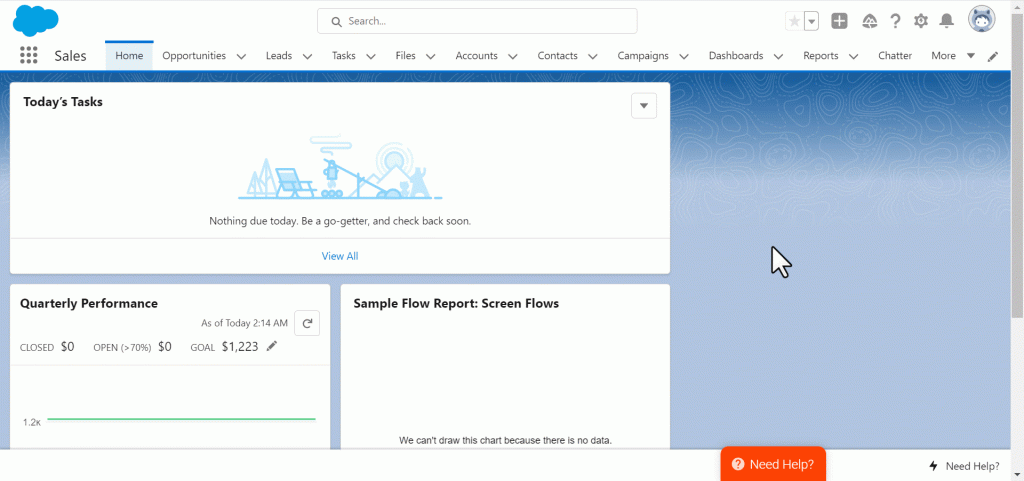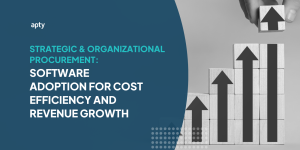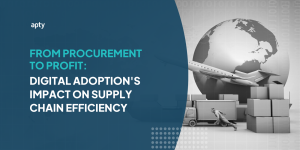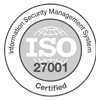As technology advances and new thinking emerge, IT support is evolving rapidly. Digital transformation integrates digital technology into all business areas, fundamentally changing how it operates and delivers value to customers. One of the most profound shifts in recent years has been the emergence of digital adoption platforms (DAPs) like Apty that enable Tier 1 support to operate at a Tier 2 level.

With software like ServiceNow, this transformation is achievable and actively being implemented by leading organizations worldwide. Let’s explore how this shift occurs and what it means for businesses.
Advanced Troubleshooting

Tier 1 support has historically been the frontline for addressing basic customer issues. However, DAPs like Apty enable these teams to perform sophisticated troubleshooting previously reserved for Tier 2.
Use Case: Apty’s Guided Workflows in ServiceNow
With Apty’s intuitive workflows, ServiceNow admins can create customized content to maximize ServiceNow adoption and ROI. ServiceNow Community has several discussions related to workflows and order guides. For example, users can create an on-board process using the Order guide and add a workflow for the first task to trigger all the subsequent tasks. Users can also attach a workflow to an order guide for one master workflow.

Apty’s guided workflows within ServiceNow provide step-by-step instructions to help Tier 1 agents solve complex problems that typically require Tier 2 assistance. These guided workflows are designed to streamline and simplify the problem-solving process, allowing Tier 1 agents to handle more advanced issues independently. By following the step-by-step instructions provided by Apty, Tier 1, agents can effectively troubleshoot and resolve complex problems without needing escalation. This proactive support reduces resolution times, with Apty users reporting a 40% reduction in case handling time.
Knowledge Sharing and Training

The modern world is characterized by fast-paced technological change, making continuous learning essential. Apty offers real-time assistance and customized guidance, enabling Tier 1 support to grow. It provides in-app guidance and is a central hub that stores all relevant learning content, which can be accessed anywhere. It simplifies training efforts by providing 24/7 real-time guidance and easily accessible and understandable training content to employees.
Use Case: Apty’s On-Demand Training
Apty’s employee training software is highly cost-effective as it eliminates the need for a trainer or training.
Apty’s on-demand training integrates with ServiceNow, providing Tier 1 teams with immediate access to relevant knowledge. As a result, the learning curve has accelerated significantly, enabling agents to manage more advanced tasks swiftly. ServiceNow offers a variety of training and certification programs to help users master its capabilities and achieve their goals.
Read more: Frequently Asked Questions on Onboarding & Training | Apty
Analytics and Insights

DAPs like Apty provide insights that go far beyond surface-level problems, offering a detailed understanding of user interactions.
Use Case: Apty’s Analytics Dashboard in ServiceNow
Apty’s Analytics Dashboard helps businesses improve user adoption, engagement, and application productivity. The Analytics Dashboard allows users to estimate the usage of Apty content, track user interactions, and gain insights to make data-driven improvements. Apty’s Analytics Dashboard integrates with ServiceNow, offering Tier 1 teams valuable insights into user behavior. Companies implementing this feature have communicated a noteworthy decrease in escalations to Tier 2 support.
Automation of Routine Tasks

Automation, such as Apty’s task automation within ServiceNow, frees Tier 1 agents from repetitive tasks, allowing them to concentrate on complex challenges.
Example: Apty’s Automation in Incident Management
Apty offers a centralized incident management system to capture, categorize, prioritize, and track incidents. Implementing automation in incident management can help streamline the process and ensure that critical events are detected, addressed, and resolved quickly and efficiently.
Automated incident management involves using automation and AI to simplify the end-to-end process. This includes using observation and alerting tools that provide monitoring capabilities to detect anomalies and potential incidents anytime, ensuring that resolution is faster and more accurate. Automating the proper workflows can free up resources that can be focused on remediation, containing the issue more quickly, and investing in a tool that can help achieve this gives a competitive edge while safeguarding revenue.
Apty’s automation capabilities in ServiceNow’s Incident Management streamline repetitive tasks like ticket routing. Companies that have integrated Apty into their operations have observed a significant reduction in manual tasks, allowing Tier 1 agents to allocate their efforts toward more intricate and advanced issues.
Improved Collaboration

A seamless communication channel between Tier 1 and Tier 2 can lead to upskilling Tier 1 agents. This means that Tier 1 agents can learn new skills and knowledge from Tier 2 agents, who are typically more experienced and knowledgeable. Apty fosters this collaboration through shared resources.
Collaborative learning is an effective way to upskill and reskill employees. It involves learners working in groups to solve problems, share knowledge, and learn from each other. This approach builds trust, reduces resistance to change, and effectively empowers employees to leverage new technologies.
To implement effective upskilling and reskilling programs, evaluating industry skill gaps and doing a forward-thinking analysis to future-proof the business is essential.
Effective reskilling tends to bring a 6 to 12 % productivity uplift, and virtually every worker needs reskilling.
Use Case: Apty’s Knowledge Management Integration
Apty’s Knowledge Management Integration with ServiceNow has encouraged teamwork between support tiers. Organizations employing these techniques have significantly increased Tier 1 resolution rates.
Tailored User Experience
Apty is an application that provides in-app guidance and training for ServiceNow, a cloud computing platform that helps manage digital workflows. Apty allows for personalized support content that empowers Tier 1 support to handle user issues deeper within ServiceNow.
Example: Apty’s Customized Support Portals
Apty’s ability to offer customized support portals in ServiceNow has enabled Tier 1 teams to provide tailored solutions. This personalized approach has led to a notable increase in customer satisfaction rates.
Reduction in Escalation

By equipping Tier 1 support with Apty’s tools and insights, issues that would typically be escalated to Tier 2 can be resolved at the frontline within ServiceNow.
Use Case: Apty’s Escalation Management
Apty’s Escalation Management features within ServiceNow have helped businesses maintain control over the escalation process. This approach led to a 20% reduction in escalations in organizations utilizing Apty, increasing efficiency and lowering costs.
Cross-Application Guidance and Enhanced Features: A Comprehensive Solution by Apty
One transformative capability that sets Apty apart in elevating Tier 1 IT support to Tier 2 competency is its cross-application guidance. By enabling support teams to navigate seamlessly across various platforms like Workday, Oracle, Salesforce, or Jira, Apty fosters an environment of unparalleled efficiency.
Cross-Application Guidance for IT Efficiency
Use Case: Apty’s Integration with Multiple Platforms
Apty’s cross-application guidance allows Tier 1 support to complete full processes that cross into other platforms like Workday or Salesforce without leaving ServiceNow. This seamless transition between platforms improves IT efficiency and enables Tier 1 teams to handle intricate tasks that typically require Tier 2 expertise.
For example, a Tier 1 agent using Apty can initiate a customer support ticket in ServiceNow and simultaneously update relevant customer data in Salesforce. This interconnected process normally involves multiple steps and coordination between different support tiers but is streamlined by Apty’s cross-application capabilities.
Business Process Goal-Tracking and Compliance Features
Apty’s comprehensive suite goes beyond just cross-platform navigation. The platform offers:
- Business Process Goal-Tracking: By aligning support tasks with overarching business goals, Apty ensures that Tier 1 support resolves issues and contributes to broader organizational objectives. This alignment has resulted in a considerable increase in goal achievement for businesses using Apty.
- Field Validations: Apty’s field validations ensure data accuracy without requiring changes to the ServiceNow platform. This enhances data integrity and allows Tier 1 support to confidently manage data-related tasks, thus affecting the bottom line positively.
- Process Compliance Features: Apty ensures that IT support complies with internal and external regulations without requiring platform changes. This leads to a streamlined process, reducing compliance risk and enabling Tier 1 support to handle compliance tasks usually reserved for Tier 2
- Scheduled Process Updates and Reminders: With the ability to schedule updates and reminders for IT support teams, Apty ensures that Tier 1 support is always on top of the latest procedures and updates. This maintains team alignment and comprehensive information sharing, leading to a significant enhancement in productivity levels.
The Impacts on Revenue, Profit & Loss, and Productivity

The capabilities of Apty have profound impacts on the key business metrics:
- Revenue: With faster resolution times through Apty’s guided support, businesses retain more customers, increasing revenue. By increasing efficiency and aligning support tasks with business goals, Apty enhances customer satisfaction and retention, potentially resulting in a notable revenue boost.
- Profit & Loss (P&L): With faster resolution times through Apty’s guided support, businesses retain more customers, increasing revenue. Streamlined processes, enhanced data integrity, and improved compliance contributed to cost savings and optimized resource utilization, resulting in a potential 20% improvement in P&L.
- Productivity: The proficiency of Tier 1 support in managing intricate, cross-platform tasks while staying synchronized with organizational updates results in elevated productivity levels. Organizations have experienced a significant rise in productivity following the implementation of Apty.
Apty’s cross-application guidance, goal-tracking, field validations, compliance features, and scheduling capabilities are not mere add-ons; they are essential in transforming Tier 1 IT support into Tier 2.
Tier 1 IT support is the first line of human-to-human support interactions, and its analysts deal with routine support issues that can typically be resolved in ten minutes or less. The responsibilities of Tier 1 IT support include end-user tech support, troubleshooting, user account management, detection of potential significant incidents and problems, proactive maintenance, and incident management.
If an issue cannot be resolved at Tier 1, it is escalated to Tier 2, which deals with more complex problems that require more detailed troubleshooting and potentially specialized resources.
By allowing support teams to navigate seamlessly between platforms and ensuring alignment with broader business goals, Apty is setting a new standard in IT efficiency. These features offer a clear pathway for Tier 1 IT support to become Tier 2 competent, substantially impacting revenue, profit & loss, and productivity.
The evidence is clear, and the results are promising – a new era of IT support is here, changing how we think about customer service and organizational efficiency.













